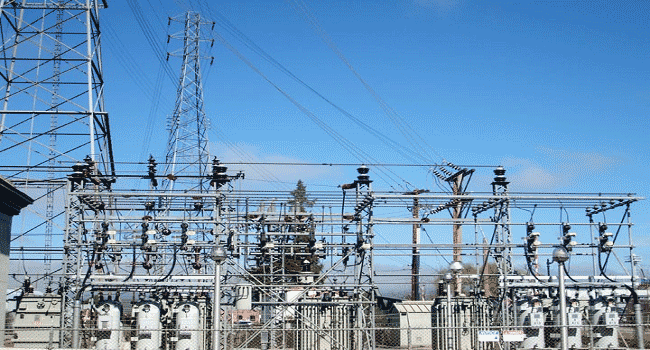
The Organised Private Sector of Nigeria (OPSN) has asked the Federal Government to justify the recent increase in electricity tariff which took effect on September 1, 2020.
The OPSN said this at a meeting with the Special Adviser to President Muhammadu Buhari on Infrastructure, Ahmad Zakari, on Friday
A statement by the OPSN on Monday said that the meeting had in attendance, the leadership of the Nigerian Association of Chambers of Commerce Industry Mines and Agriculture (NACCIMA), the Manufacturers Association of Nigeria (MAN), the Nigeria Employers’ Consultative Association (NECA) the Nigerian Association of Small and Medium Scale Enterprises (NASME), and the Nigerian Association of Small Scale Industrialists (NASSI).
They maintained that the tariff increase is coming at a time when the economy is facing a potentially deep recession and Nigerians are facing increasing hardships, with unemployment rising to over 27% as many factories are facing total closure.
READ ALSO: Ngige Asks Resident Doctors To End Strike, Embrace Dialogue
In response, Mr Zakari said that the increment is necessary due to the fact that the government is having serious financial and revenue challenges which has made it impossible to pay for electricity subsidy.
The Special Adviser stated that over the past five years, subsidy on electricity has skyrocketed from N165 billion in 2015 to over N500 billion in 2019, superseding the Federal Government budgetary allocations to health and education combined.
The statement added that after the discussion between both parties, the meeting agreed that the subsidy situation is unsustainable due to the impact on the electricity industry, but certain conditions need to be created to attract more investment in the sector.
“The subsidy situation is simply unsustainable. And if allowed to continue, the electricity industry will collapse as the government no longer has the fiscal capacity to sustain the increasing subsidy level and at the same time finance the capital investment necessary to extend electricity supply to the over 90 million Nigerians who lack access to electricity.
“It is, therefore, necessary to create conditions that will attract private investment in the industry for which cost-reflective tariff is inevitable.
“It is however imperative that the confidence of electricity consumers must be inspired and they must be assured that the new tariff regime will lead to significant and sustained improvement in the quantity and quality of electricity supply,” the statement added.
The OPSN urged the Federal Government agencies to ensure that the new tariff structure must be “transparent, charges must be fair and consumers must be able to verify that they are paying only for what they consume.”
They asked the FG to compel Distribution Companies (DisCos) to invest in a metering program that will totally eliminate estimated billing and, as well, focus more on the funding of locally made meters by the Central Bank.
“Measures that should ease the burden of industrial consumers must be implemented even if as temporary arrangements. This is to enable them to sustain operations and remain competitive without resorting to laying-off employees.
“Such measures as the Eligible Customer Scheme, which has been approved by NERC but has been blocked by Distribution Companies must be allowed to come into play without any further delay,” the OPSN stressed.
The also asked the Federal Government to support industries to remain viable by instructing the CBN to review its recent decision on payments of imports, as well as review the current policy on border closure.
The statement said that the meeting agreed that the OPSN would continue to engage the Government through the Presidency, Ministry of Power, NERC, and other key agencies to continue deliberations and provide feedback on the monitoring of the implementation of the Service-Based Tariff structure.

0 Comments